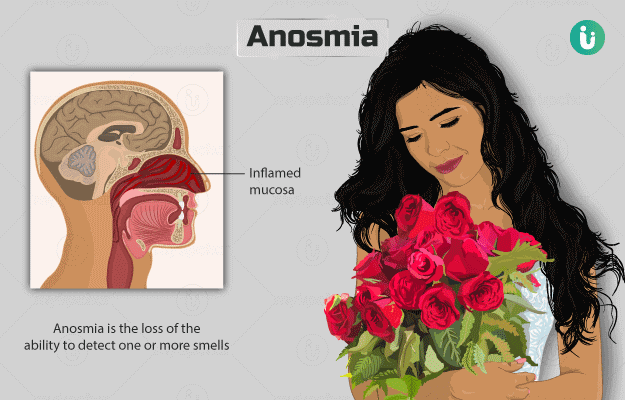Even a slight change in how you perceive smells can be an uncomfortable experience. The loss in your sense of smell is usually a symptom of the onset of an illness or an underlying condition. Medically, it is known as anosmia.
Anosmia or losing your sense of smell typically occurs when the nasal passages become blocked, the most common reason being a common cold or another respiratory illness caused by a viral infection. (Read more: Home remedies for nasal congestion)
A head injury or impact to the head that has the potential to cause damage to the sensory nerves, or in rarer cases, a congenital problem, i.e., a person was born with no sense of smell, are some of the other factors behind anosmia.
In some cases, the onset of anosmia has also been attributed to the administering of certain drugs that have caused such a side effect in a patient, while the condition has also been studied in degenerative neurological conditions such as Alzheimer's disease and Parkinson's disease.
People who lose their sense of smell often experience a reduced sense of taste along with it, which doesn't allow them to taste foods as well as before, which can lead to a loss of appetite as well. While anosmia isn't known to be a serious condition, it can affect a person's daily life besides taking a toll on his or her mental health as a result.
Read more: Loss of smell and taste in COVID-19

 Doctors for Anosmia (loss of sense of smell)
Doctors for Anosmia (loss of sense of smell)  OTC Medicines for Anosmia (loss of sense of smell)
OTC Medicines for Anosmia (loss of sense of smell)





































